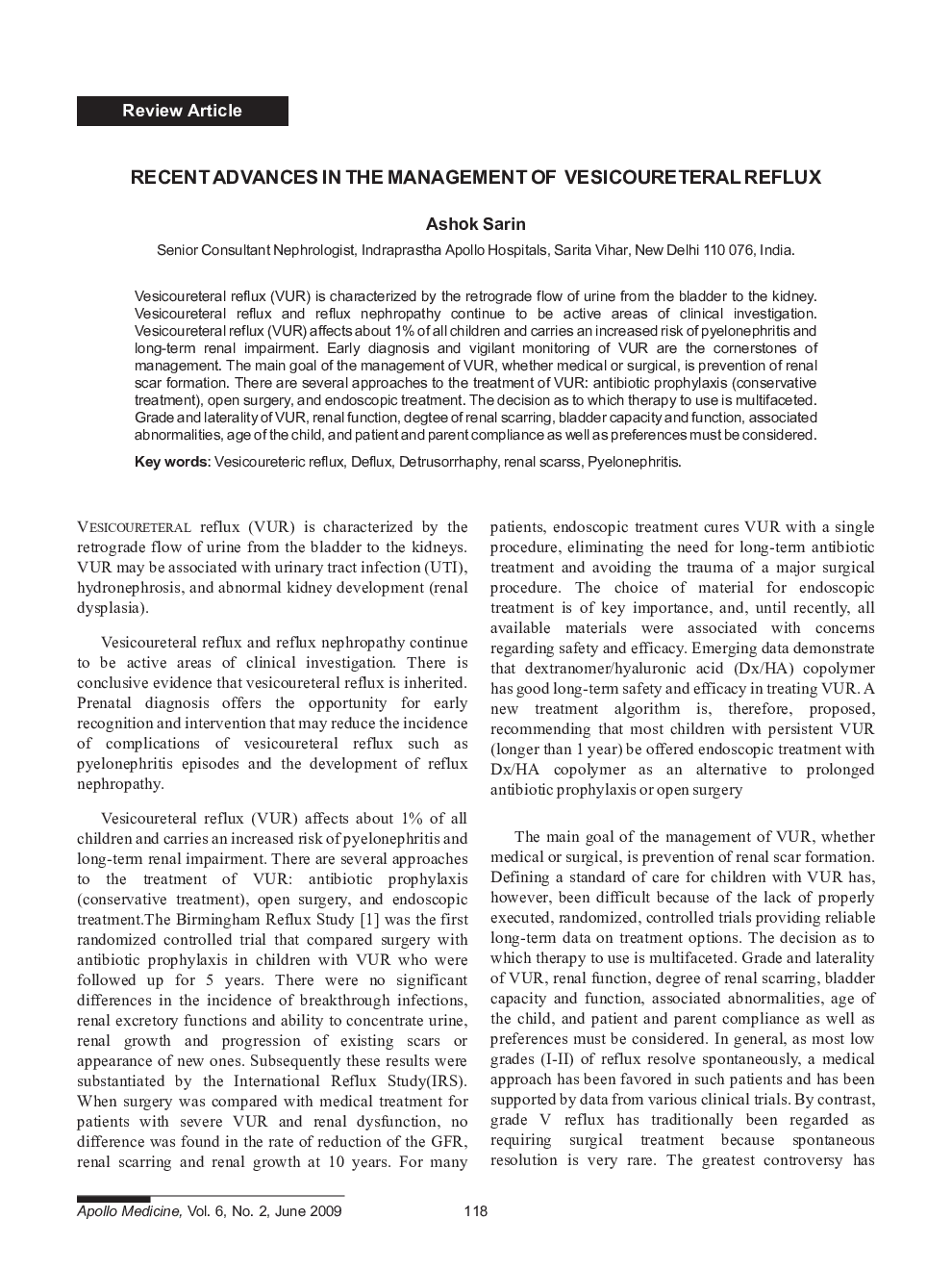| Article ID | Journal | Published Year | Pages | File Type |
|---|---|---|---|---|
| 3235418 | Apollo Medicine | 2009 | 7 Pages |
Vesicoureteral reflux (VUR) is characterized by the retrograde flow of urine from the bladder to the kidney. Vesicoureteral reflux and reflux nephropathy continue to be active areas of clinical investigation. Vesicoureteral reflux (VUR) affects about 1% of all children and carries an increased risk of pyelonephritis and long-term renal impairment. Early diagnosis and vigilant monitoring of VUR are the cornerstones of management. The main goal of the management of VUR, whether medical or surgical, is prevention of renal scar formation. There are several approaches to the treatment of VUR: antibiotic prophylaxis (conservative treatment), open surgery, and endoscopic treatment. The decision as to which therapy to use is multifaceted. Grade and laterality of VUR, renal function, degtee of renal scarring, bladder capacity and function, associated abnormalities, age of the child, and patient and parent compliance as well as preferences must be considered.
